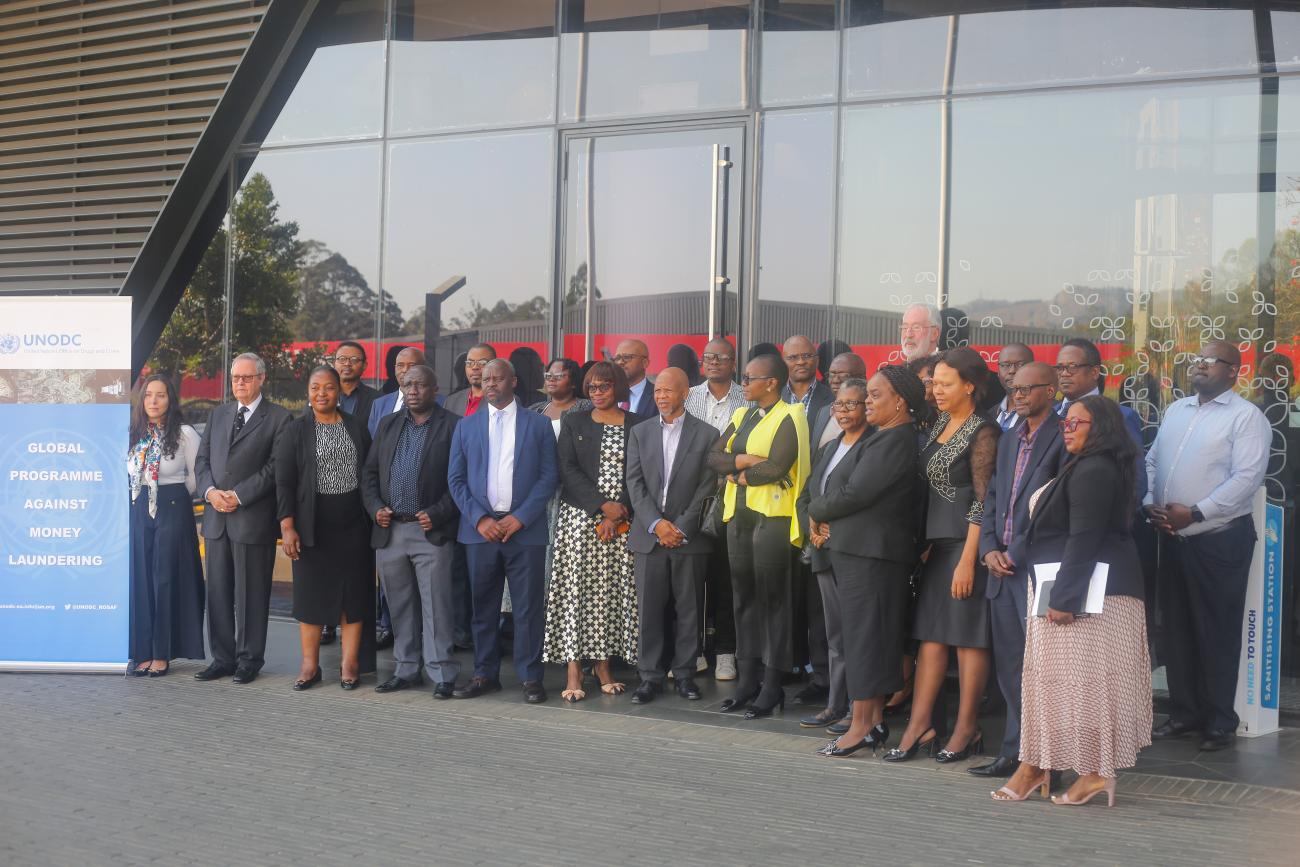The United Nations Office on Drugs and Crime (UNODC), in collaboration with the Eswatini judiciary, has launched a pivotal three-day workshop focused on Anti-Money Laundering (AML) and Asset Recovery. This workshop, held at the Hilton Garden Inn in Mbabane, represents a critical advancement in Eswatini's ongoing efforts to fortify its legal frameworks against financial crimes and safeguard the integrity of its financial systems.
The workshop began with powerful opening remarks from Hon. Justice Jacobus Annandale, who represented the Chief Justice. He underscored the increasing sophistication of financial crimes and the necessity of modern legal tools to effectively counteract them.
“We now live in an era where the traditional deterrents, such as long prison sentences, are no longer enough to deter criminal enterprises. The Prevention of Organized Crime Act (POCA) and similar legislation provide us with the means to target the very profits that drive these criminal activities,” said Justice Annandale. H
e emphasized the importance of asset forfeiture, stating, “Take away what they have gained, remove the assets from their pockets, and put it into the pocket of the government so that it can be used for the benefit of our nation.”
Mr. George Wachira, the UN Resident Coordinator in Eswatini, also addressed the participants, emphasizing the critical role of the judiciary in upholding the rule of law and protecting the financial system. “Your presence here today is an acknowledgment of the critical role of a robust judiciary in combating illicit financial flows, enhancing the recovery and return of stolen assets, and combating organized crime,” Mr. Wachira remarked.
He also stressed the importance of a collaborative approach, noting, “The fight against organized crime and money laundering requires a comprehensive, whole-of-government approach. We must ensure that key institutions—including parliament, the judiciary, anti-corruption agencies, and the private sector—work in concert to disrupt criminal networks and recover stolen assets.”
In highlighting the global and regional dimensions of this effort, Mr. Wachira added, “Eswatini has commendably demonstrated its commitment to combating money laundering and organized crime by consistently adhering to international standards and collaborating closely with regional and global partners. As UN Secretary-General António Guterres has said, ‘Illicit financial flows are a major impediment to achieving the Sustainable Development Goals.’”
The workshop, led by distinguished experts including Justice Dlamini and Judge Hopmeier, will feature in-depth discussions on various facets of AML and asset recovery. Participants will explore complex legal scenarios, review case studies, and gain insights into investigative techniques that have proven effective worldwide.
Mr. Wachira emphasized the importance of continuous learning in the fight against financial crimes, stating, “Our economies and trade are increasingly interconnected, while exponential technological advancement makes it equally available for both benign and malignant use. This workshop is about learning and expanding our capacities in this important area.”
As the workshop progresses, it is anticipated that the Eswatini judiciary will be further empowered to secure more convictions in money laundering cases and increase the seizure and forfeiture of illicit assets. Justice Annandale’s closing thoughts were clear: “The three days will come up with something that will assist us in our work. Let’s ensure we use this knowledge wisely to protect our nation.”
Mr. Wachira concluded with a message of hope and determination: “Together, we can build a stronger, more resilient future for Eswatini.”





